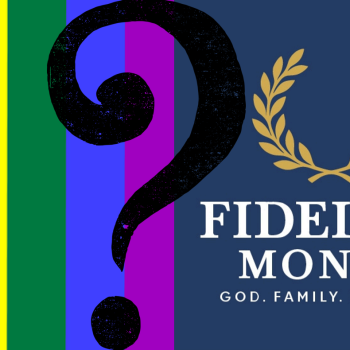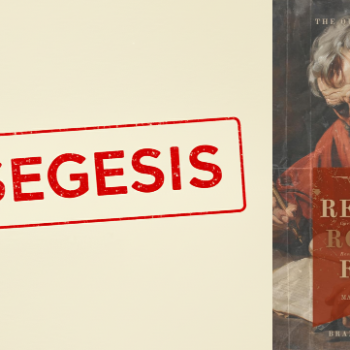 The New Testament (NT) was not an historical inevitability. At best, the NT was a product of God’s passive will, not His active will. If one takes an infinitesimal amount of time to evaluate the historical record, this truth becomes crystal clear. In this post, I posit that, contrary to the current assumption that sees the NT as an historically inevitability, it was in fact not. On the contrary, the historical record shows the NT a byproduct of opportunity born out of necessity. Moreover, the Church was (and is) a part of God’s active will and exists with or without the written works she produced.
The New Testament (NT) was not an historical inevitability. At best, the NT was a product of God’s passive will, not His active will. If one takes an infinitesimal amount of time to evaluate the historical record, this truth becomes crystal clear. In this post, I posit that, contrary to the current assumption that sees the NT as an historically inevitability, it was in fact not. On the contrary, the historical record shows the NT a byproduct of opportunity born out of necessity. Moreover, the Church was (and is) a part of God’s active will and exists with or without the written works she produced.
Evangelicals have typically given little consideration to the formation of the New Testament and its possible implications on a doctrine of Scripture. Most evangelical consideration of canon history, if considered at all, assumes the existence of a New Testament canon from the very beginning of Christianity itself, or at least when the first document of the New Testament was completed (Allert, C. D. (2007). A high view of scripture?: The authority of the Bible and the formation of the New Testament).
The First New Testament List A Reaction
According to some scholars, the NT was a product of necessity. Church authorities sought to collect an authoritative list of approved books to counter the heretic Marcion’s (mid-second century) compilation of altered ones. Marcion rejected the whole of the Old Testament and believed it the work of an evil deity. He removed all references to the Old Testament in his New Testament. Other scholars, Allert included, see Marcion’s influence on the NT canon to a lesser degree. Agreement exists that Marcion’s list of books did engender a response. In response to heresy, the borders of orthodoxy become defined. The borders of the NT canon required definition.
The NT was composed between 50 and 100 AD. The earliest list of 27 NT books (our current canon) appears in the Thirty-Ninth Festal Letter of Athanasius of Alexandria in 367 AD. The first councils to recognize this list: the Council of Rome in 382 AD and the Council of Hippo in 393 AD. Please note the time: the three centuries since Christ’s earthly ministry and over 250 years since the death of the Apostle John in 100 AD for the Church to produce a modern list.
The New Testament Up For Debate
And what of the content of the New Testament canon? Of the many works produced in the first 150 years of Christianity, some were universally included (the Gospels, Acts, and writings of Paul), others included reluctantly (James, Jude, 2 Peter, 3 John, Hebrews, and the Book of Revelation), and still others rejected (the Didache, the Shepherd of Hermas, Gospel of the Hebrew, and Acts of Paul) (Eusebius Book III, Chapter 25).
Furthermore, the Apostles left the Church no table of contents. Those who came after (through apostolic succession) had the task to determine the final canon. Scripture contains no list of inspired books either explicitly or implicitly. There exists no biblical justification for the content of the Bible. All who read and cherish the NT rely on the Church to inform them what books belong in it.
There exists no biblical justification for the content of the Bible. All who read and cherish the NT rely on the Church to inform them what books belong in it.
A New Testament Never Commanded By Jesus
Jesus never commanded a word of His to be written down. He commanded the Apostles to preach, not to write. The writing came later (as demonstrated above). The Church decided to write down the story of the life of Jesus, not in response to Jesus’ command, but in response to a need born out of necessity. Jesus commanded his followers preach because those who heard could NOT read, but they could listen—listen to His Church.
The Church existed decades before a single letter written in the NT. Those in the Church wrote every word of the NT and those in the Church eventually determined the approved content of the NT. Moreover, as the Church’s book, the proper interpretation of the NT (and the whole Bible) belongs to the Church. Jesus established a Church, not a book club. God allowed the Church to write and compile a book. He never commanded its creation and the Church exists with or without it.
Like what you read? Please check out my other writing here.
Please like and follow me on Facebook.











